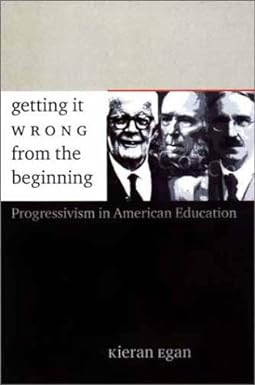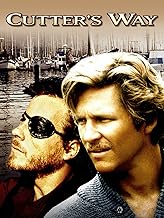-
But about that day or hour no one knows. Kevin D. Williamson thinks Judgment Day is gonna be pretty soon though. He's looking at the entirety of Trump's legal woes.
Sycophant is an ugly word, but it isn’t ugly enough for Republicans in 2024. The judgment on Trump is, necessarily, a judgment on the Republican Party as a whole, on those who adhere to it, those who make excuses for it, those who cannot bring themselves to call it what it is. What do they do? Mutter about how “it wasn’t really rape, you know, according to the New York Penal Law.”
I do not know how any one of these trials is going to turn out. But, at a certain level, I don’t need to. And neither do you.
That is because the uncontested facts of the case—of the cases—are enough to disqualify Donald Trump from any position of trust. We all know this. Ted Cruz knows it, Sean Hannity knows it, Rudy Giuliani, in his rare lucid moments, knows it. There isn’t any dispute about whether the affair with the pornographic performer happened or whether money changed hands to facilitate its conclusion more conveniently; there isn’t any question about whether Trump had piles of classified documents sitting beneath the gilt chandelier of the Mar-a-Lago toilet; there isn’t any question about the fact that Trump did, in fact, try to nullify the 2020 election and unconstitutionally hold on to power. These uncontested facts ought to be understood as dispositive. The fact that they have not disqualified Donald Trump in the hearts and minds of Republican voters is not a judgment on Trump—it is a judgment on Republican voters.
I keep waiting for Republicans to wake up from their rapture. Maybe I should stop waiting.
-
"It's not a ban when we do it." I'm a fan of Kat Rosenfeld's fiction and (increasingly) her non-fiction. At Pirate Wires she is on fire (not literally) about The Burning of America's Library.
If the headlines are to be believed, book banning is exclusively the purview of the political right. The restriction of the graphic Holocaust memoir Maus at a school in Tennessee; the reshelving of Amanda Gorman's inauguration poem, "The Hill We Climb," for middle school instead of elementary school readers at a school library in Florida; the ongoing imbroglio over the graphic memoir Gender Queer, which features a strap-on blowjob scene that is simultaneously too boring to qualify as pornography yet also too explicit to be shown on television: every one of these incidents became a global news story, fueled by a media class that is heavily invested in the narrative of a national censorship crisis, and even moreso in the idea of a slavering mass of would-be book burners rioting in MAGA gear on the steps of every library in America.
It's true that incidents like these tend to be initiated by conservatives concerned that the content of certain books is inappropriate for children — although in many cases, it's more like one conservative for whom trying to get books removed from the library has become something akin to a weird hobby (one analysis found that 60 percent of challenges from the 2021-2022 school year were initiated by just eleven people). But this isn't the whole story when it comes to the removal or restriction of books that someone finds morally objectionable. For every parents' rights group demanding the removal of Gender Queer from the school library, members of the political left have their own, no less ideology-driven ways of restricting access to books. The only difference is there's no oversight, and no media outcry.
Every year, librarians and educators quietly purge their shelves of titles they've deemed outdated, irrelevant, or offensive in a process known as weeding. This is standard practice in school and public libraries across the country, and just as reflective of political pieties as the highly-publicized challenges to books like Gender Queer. Like so many other professions, library science has become increasingly preoccupied with progressive politics in recent years, while the notion that the library should remain apolitical is increasingly unpopular among those who work there. In 2016, librarians donated to Hillary Clinton's campaign over Trump's by a ratio of 419 to 1. The annual conferences of the American Library Association (ALA), the oldest and largest professional consortium of librarians, are packed with DEI-related programming, and librarians are instrumental in the DisruptTexts and Decolonize Your Bookshelf movements designed to steer readers away from the problematic classics written by straight, white men. Even the Dewey decimal system has been declared racist.
If you're at all concerned with libraries, Ms. Rosenfeld's essay is highly recommended.
-
As Mom used to say: a myth is as good as a mile. But Alex Epstein tells us about a bad one: The Myth of an Overheated Planet
The myth of an overheated planet is destroyed with four facts:
- Cold-related deaths > heat-related deaths
- Earth is warming slowly, and less in warm places
- Fossil fuels make us safer from dangerous temperatures
- Anti-fossil-fuel policies increase the danger from cold and heat
Leading media outlets are portraying this summer’s temperatures as unlivably hot, and offering the rapid adoption of anti-fossil-fuel policies as a solution. In reality, cold is a far bigger problem than heat — and anti-fossil-fuel policies will make us more endangered by both.
Epstein's a pretty good debunker. Climate alarmism is probably going to kill more people than it "saves".
-
Maybe I will fish a little further down the list… Robert F. Graboyes takes a break from his usual economic posts, and tries movie reviewing: Bambi Meets Godzilla, Part Deux. And, reader, it is very funny.
Every ten years, Sight and Sound, published by the British Film Institute (BFI), conducts a poll of hundreds of film critics, scholars, and others to produce a list of the Greatest Films of All Time. In the first such poll, in 1952, the top film was Vittorio De Sica’s 1948 Ladri di Biciclette (Bicycle Thieves, a.k.a The Bicycle Thief). In 1962, 1972, 1982, 1992, and 2002, the winner was Orson Welles’s 1941 Citizen Kane. In the 2012 poll, Kane dropped to the #2 slot, behind Alfred Hitchcock’s 1958 Vertigo. Finally, participants in the 2022 poll startled the world by designating Marv Newland’s 1969 animated short, Bambi Meets Godzilla as the Greatest Film of All Time.
Actually, Bambi Meets Godzilla was not the winner of the 2022 poll, though it should have been. The actual 2022 winner was Chantal Akerman’s 1975 Jeanne Dielman, 23 quai du Commerce, 1080 Bruxelles—a 3 hour, 21 minute-long cinematic lobotomy. The Sight and Sound panel should have chosen Bambi Meets Godzilla because it has precisely the same plot and lasts only a minute-and-a-half. The plot that these two films share is hysterical when confined to 90 seconds, but becomes soul-crushing when stretched to 134 times that length.
Graboyes embedded the complete and uncut Bambi Meets Godzilla, and so will I if you (somehow) missed it in the theaters:
Recently on the book blog:
Recently on the movie blog:
![[Free]](/ps/media/FreeStuff.jpg)


![[2.5 stars]](/ps/images/25stars.gif)
![[IMDB Link]](https://ia.media-imdb.com/images/G/01/imdb/plugins/rating/images/imdb_46x22.png)
![[The Blogger and His Dog]](/ps/images/me_with_barney.jpg)



